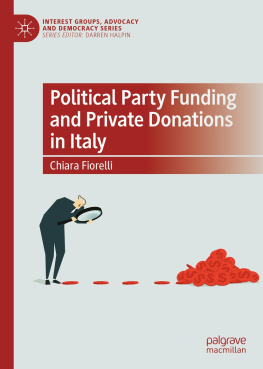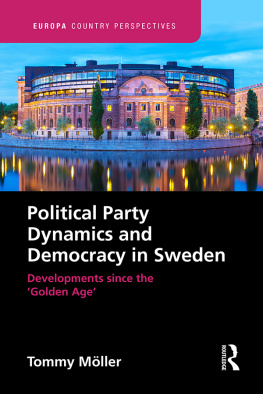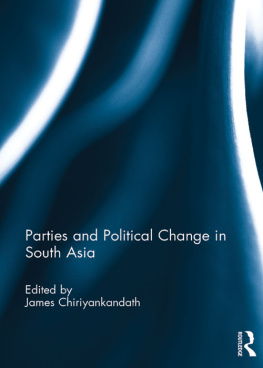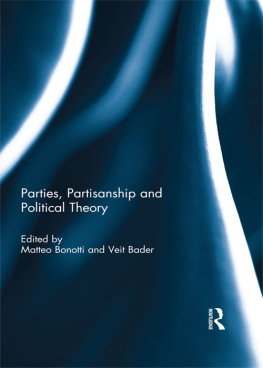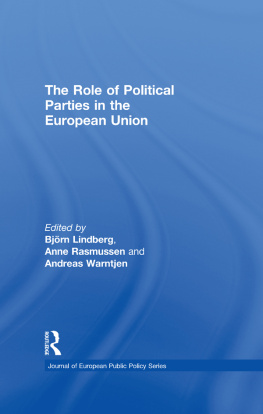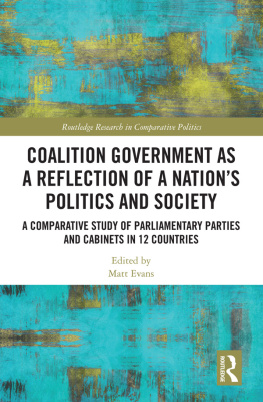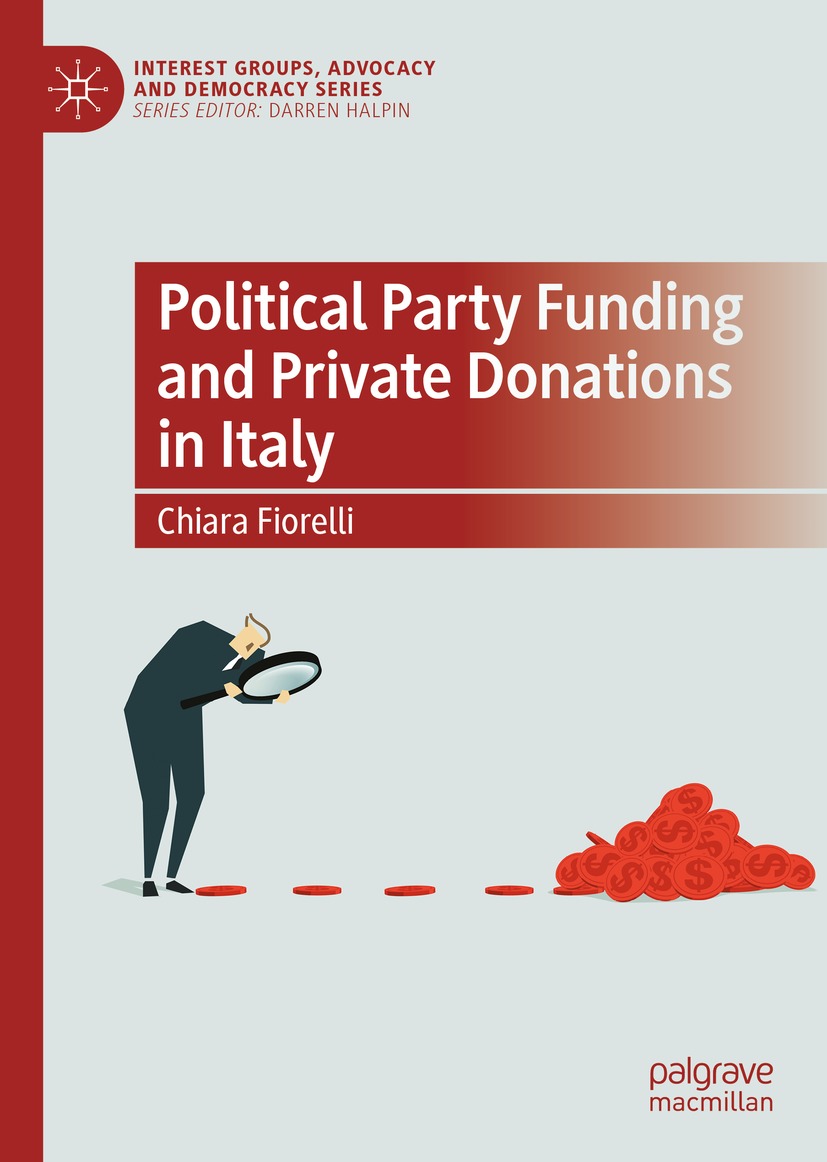Interest Groups, Advocacy and Democracy Series
Series Editor
Darren Halpin
Research School of Social Sciences, Australian National University, Canberra, ACT, Australia
The study of interest groups and their role in political life has undergone somewhat of a renaissance in recent years. Long standing scholarly themes such as interest groups influence mobilization, formation, and bias, are being addressed using new and novel data sets and methods. There are also new and exciting themes, such as digital activism, the role of ICTs in enabling collective action and the growth of global advocacy networks, are being added. Contemporary debates about the role of commercial lobbyists and professionalized interest representation are also highly salient. Together, they draw an ever larger and broader constituency to the study of interest groups and advocacy. This series seeks to capture both new generation studies addressing long standing themes in new ways and innovate scholarship posing new and challenging questions that emerge in a rapidly changing world. The series encourages contributions from political science (but also abutting disciplines such as public policy and governance, economics, law, history, international relations and sociology) that speak to these themes. It welcomes work undertaken at the level of sub-national, national and supra-national political systems, and particularly encourages comparative or longitudinal studies. The series is open to diverse methodologies and theoretical approaches. The book series will sit alongside and complement the Interest Groups & Advocacy journal.
More information about this series at http://www.palgrave.com/gp/series/14850
Chiara Fiorelli
Department of Political Sciences, Sapienza University of Rome, Rome, Italy
Interest Groups, Advocacy and Democracy Series
ISBN 978-3-030-73868-6 e-ISBN 978-3-030-73869-3
https://doi.org/10.1007/978-3-030-73869-3
The Editor(s) (if applicable) and The Author(s), under exclusive license to Springer Nature Switzerland AG 2021
This work is subject to copyright. All rights are solely and exclusively licensed by the Publisher, whether the whole or part of the material is concerned, specifically the rights of translation, reprinting, reuse of illustrations, recitation, broadcasting, reproduction on microfilms or in any other physical way, and transmission or information storage and retrieval, electronic adaptation, computer software, or by similar or dissimilar methodology now known or hereafter developed.
The use of general descriptive names, registered names, trademarks, service marks, etc. in this publication does not imply, even in the absence of a specific statement, that such names are exempt from the relevant protective laws and regulations and therefore free for general use.
The publisher, the authors and the editors are safe to assume that the advice and information in this book are believed to be true and accurate at the date of publication. Neither the publisher nor the authors or the editors give a warranty, expressed or implied, with respect to the material contained herein or for any errors or omissions that may have been made. The publisher remains neutral with regard to jurisdictional claims in published maps and institutional affiliations.
Cover image: ehui1979 / DigitalVision Vectors / Getty Image
This Palgrave Pivot imprint is published by the registered company Springer Nature Switzerland AG
The registered company address is: Gewerbestrasse 11, 6330 Cham, Switzerland
Abbreviations
ADP
Movimento per lAutonomia Democratici Progressisti
CCD
Centro Cristiano Democratico
DC
Democrazia Cristiana
FDI
Fratelli dItalia
FI
Forza Italia
FV
Federazioni dei Verdi
IDV
Italia dei Valori
LMP
Lista Marco Pannella
LN
Lega Nord
LR
Movimento per la DemocraziaLa Rete
M5S
Movimento 5 stelle
MCS
Movimento dei Cristiano Sociali
MSI
Movimento Sociale Italiano
PCI
Partito Comunista Italiano
PD
Partito Democratico
PDL
Popolo delle Libert
PDS
Partito dei Democratici di Sinistra
PLI
Partito Liberale Italiano
PPI
Partito Popolare Italiano
PR
Partito Radicale
PRC
Partito della Rifondazione Comunista
PRI
Partito Repubblicano Italiano
PS
Patto Segni
PSDI
Partito Socialista democratico Italiano
PSI
Partito Socialista Italiano
SC
Scelta Civica
SVP
Sdtiroler Volkspartei
UDC
Unione di Centro
UV
Union Vaildotaine
Contents
List of Figures
List of Tables
Table B.1.1 Year 1987
Table B.1.2 Year 1994
Table B.1.3 Year 2013
Table B.2.1 Year 1987
Table B.2.2 Year 1994
Table B.2.3 Year 2013
Footnotes
Names and labels of political parties analysed.
The Author(s), under exclusive license to Springer Nature Switzerland AG 2021
C. Fiorelli Political Party Funding and Private Donations in Italy Interest Groups, Advocacy and Democracy Series https://doi.org/10.1007/978-3-030-73869-3_1
1. Introduction: The Informative Power of Private Political Financing
Chiara Fiorelli
(1)
Department of Political Sciences, Sapienza University of Rome, Rome, Italy
Abstract
Since at least two decades, the political partys function as the primary collective actor has been questioned from a variety of perspectives, and many scholars have focused on the progressive delegitimisation that threatens to alter its representational role. The dynamics of political financing, particularly the role of private money, enable a novel understanding of the linkages between political representatives and civil society. This work attempts to stimulate discourse about the relationships between donors and political actors by examining the case of Italy in a comparative context.
Keywords
Political financing Private donations Political parties Italian case Representation
Without a doubt, significant changes in the way politics operates have arisen over the past 50 years. As a result of the restructuring of critical, long-standing relationships between individuals and the state, new responsibilities and behaviours have been established for both private citizens and public actors. The hollowing out of conventional cleavages and citizens political behaviour, as well as their modes of representation, has defined new relations between civil society and the political parties that represent their interests. Political parties, on the other hand, have remained the most powerful collective players, owing to their direct access to public office through democratic elections.
However, among Western democracies, political parties now are facing critical challenges that affect their organisational nature and their representational role as legitimised political actors (Ignazi, ), leading to narrower representation with specific policy aims that challenge the role of political parties in the articulation of citizens demands.

